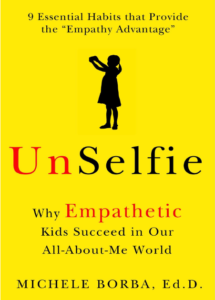Simple, proven solutions to enhance children’s learning that every parent should have in their back to school toolbox.
Academic success impacts our children for the rest of their life: it influences their self-esteem, college selections, job attainment, financial success, and even their choice of spouses. It’s no wonder we go to great lengths to give our kids an academic edge.
But despite our good intentions we often overlook a few simple strategies that research has proven to impact children’s academic success. Even better, these seven science-backed solutions are things that every parent can do, don’t cost a dime, and they are proven to boost children’s school success.
1. Make Sure Your Kids Get Enough Zzz’s
A lack of sleep can have a serious impact on children’s abilities to learn and perform at school. In fact, in one recent study, Tel Aviv University researchers found that missing just one hour of sleep can be enough to reduce a child’s cognitive abilities by almost two years the next day. For example, a sixth grader who loses precious zzz’s the night before a big test could end up performing at a fourth grade level.
Set a bedtime and keep to it every single night. Flashing images affect REM, so be sure to turn off the computer and television at least thirty minutes prior to bedtime. Take away the cell phones during nighttime hours—62% of kids admit they use it after the lights go out and their parents are clueless. Also, watch out for caffeinated sleep stealers like cold medications, chocolate, or energy-drinks.
2. Applaud Effort the Right Way
 Carol Dweck’s research at Columbia University found that how we praise our kids’ schoolwork can enhance or impede achievement. For example, instead of encouraging your child to bring home straight A’s, put the emphasis on how hard she is working. This will encourage her to persist and it will help to sustain her motivation.
Carol Dweck’s research at Columbia University found that how we praise our kids’ schoolwork can enhance or impede achievement. For example, instead of encouraging your child to bring home straight A’s, put the emphasis on how hard she is working. This will encourage her to persist and it will help to sustain her motivation.
Kids who are praised for their persistence are more likely to blame any failure they have on not trying hard enough, rather than on a lack of ability (a belief which can discourage kids very easily).
Above all, keep in mind that the grade is not what motivates a top student to succeed-it’s their inner drive for learning.
3. Respect Learning Styles
If your son insists on plugging into his iPod when he studies, or if your daughter swears that flash cards are the only way she can learn her spelling words- listen up! While you may prefer a quiet room with no distractions when it comes to getting work done, that doesn’t mean it’s the best way for your kids to concentrate and get down to business.
 Harvard researcher, Howard Gardner’s work shows there are different kinds of intelligences-or ways kids learn best-which include: musical, spatial, logical-mathematical, linguistic, bodily, intrapersonal, interpersonal and naturalist.
Harvard researcher, Howard Gardner’s work shows there are different kinds of intelligences-or ways kids learn best-which include: musical, spatial, logical-mathematical, linguistic, bodily, intrapersonal, interpersonal and naturalist.
The trick is to pay attention to how your kid learns best so you can identify their unique learn style (not yours!) and then tap into it help them be more successful. For instance, if your child learns best by remembering what she sees, point it out to her and encourage her to draw, mindmap or draw those images.
4. Pay Attention to Peers
 Pals play an enormous part of our kids’ self-esteem, and research also reveals that who our kids befriend can affect their study habits and their overall academic success.
Pals play an enormous part of our kids’ self-esteem, and research also reveals that who our kids befriend can affect their study habits and their overall academic success.
The truth of the matter is that peer pressure can have both positive and negative consequences on a child’s education. If your child chooses friends who believe that education is important, chances are she will adopt those attitudes and put more emphasis into hitting the books harder and focusing more in class. On the flip side, if your child is best buddies with a kid who stays distracted during class, doesn’t turn in homework assignments, cheats or cuts corners, and rarely studies before a big test, chances are she will fall in line with the peer’s bad habits.
TIP: A Ohio State University study found that kids are more likely to have friends with future college plans if they have a warm, positive relationship with their parents.
So cultivate that kind of parenting style and you’ll help your child make the right friendship decisions! And encourage your child to seek out pals with like-minded educational values.
5. Make Family Meals a Must
TIP: A study by Columbia University showed that kids whose families eat regular, relaxed meal together are not only less likely to abuse drugs and alcohol and develop eating disorders-they are also more likely to achieve higher grades.
Family dinners do not have to consist of gourmet, five-course meals. Serve simple, healthy meals, turn off the television and unplug the phone, and enjoy each other’s company.
And if everyone in your family is on a different schedule and can’t make it to dinner- don’t worry! Consider instating an evening family snack time where everyone can review their days with each other before bedtime.
The trick is to find what works best for you family and turn it into a routine.
Keep in mind it’s not the macaroni and cheese dish has nothing to do with giving your kid the academic edge. It’s those informal: “How was your day?” “What are you discussing in science?” “How do you plan to study for that test?” kind of discussion topics that let your kid know your family prioritizes education.
6. Squelch the Stress…At Home
Research shows that the conflict kids face at home spills over into their school life and impedes their learning.
REALITY CHECK: Family-induced stress can affect kids’ learning and behavior for up to two days following an incident.
So take a vow of ‘yellibacy’ and make your home a stress-free zone this school year. Teach your child healthy ways to reduce stress and find ways to de-stress with your kids.
Take longs walks, read together.
Do yoga.
Have a family movie night.
Be a model on how to disagree without it ending in a screaming match.
Teach your kids that it’s okay for them to walk away from an argument until they are calm enough to return.
Tune into your child’s unique stress signs, so you’ll be able to recognize when he’s on overload. Then help him learn to identify his own stressors (and triggers) so that you can intervene and help him to decompress before something comes to blows.
7. Tailor Expectations to Your Child’s Abilities
All parents want the very best for their kids. It’s only natural!
TIP: As a parent, you should consider your learning aspirations for your child like a rubber band: gently stretch but don’t snap.
Every child is different, and while its okay to encourage her to try hard and achieve her best, it’s also important to remember that ‘What’s best’ is different for every child. Just because your kid isn’t composing his own symphonies or writing his memoirs by age 10, doesn’t mean that he won’t still do great things with his life. Always remember this one commandment: ‘Tailor thy parenting only to thy child’. You and your children will be happier and healthier for it, as well as succeed.
If you want to boost your kid’s academic performance and see lasting results, it will take a few things from you: consistency, dedication, and patience. Those things are always better parenting tools than anything money can buy.
Do remember that no two kids are the same, even if they come from the same household. If you pay attention to the individual needs of each child and do what’s right for them and for you, you’ll see the payoff in their attitudes and their report cards in no time.
What simple strategy are you using to help your children have a successful school year?
Best!
Michele
Dr. Michele Borba, Parenting Expert
Tips from this blog were adapted from the chapter on Stress, Sleepless, Learning Disabilities, and ADHD in my book, The Big Book of Parenting Solutions: 101 Answers to Your Everyday Challenges and Wildest Worries.
 My latest book is UnSelfie: Why Empathetic Kids Succeed in Our All-About-Me World with proven answers we can use to raise good people.I hope you join me in starting an #UnSelfieRevolution to put empathy, kindness, caring, and courage back on our child-rearing an educational agendas.
My latest book is UnSelfie: Why Empathetic Kids Succeed in Our All-About-Me World with proven answers we can use to raise good people.I hope you join me in starting an #UnSelfieRevolution to put empathy, kindness, caring, and courage back on our child-rearing an educational agendas.
Follow me on twitter: @micheleborba, Facebook: and my blog, Dr. Borba’s Reality Check where I’ll give you proven practices to produce a generation of strong, caring kids.


